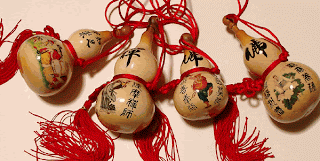One of my co-workers teaches a class on trade law at a private university here in Tokyo, and he asked me if I wanted to teach a class for him. The previous week, I had given a presentation at Administrative Training on the Japan-China-Korea Investment Treaty (日中韓投資取り決め)that is currently being negotiated by my section colleagues at MOFA. Since he hadn't taught a lesson yet on investment treaties, I gave a lecture based on the presentation I gave.
Hoo-boy, what a trying experience! When I walked in, it seemed as though about 1/2 of the students were sitting in the back 2 rows: bad sign. While the regular professor was taking care of housekeeping matters, it seemed like no one was paying attention, instead talking to each other, texting on their cellphones, etc. I walked up to the podium and noticed that the girl in the front row had her head down on the desk and was asleep; if it were my class back in the States, I'd have chucked her out of the class (or at least told her to wake up), but it was a bit awkward because the regular professor didn't seem to know how to keep discipline and they took advantage of his passivity (受身を利用する = うけみ を りよう する).
I was actually really surprised how discourteous 不謹慎(ふきんしん)the students were, considering how many times I've been told how the Japanese are so polite to strangers and respectful of their elders, etc. Maybe things are different once they get into university because it's like a vacation compared to high school!
As I was talking, I was a bit unnerved at the people in the back of the class continuing to talk, etc. but I charged ahead. At one point I was talking about "retaliatory measures/actions" and I inadvertently said 回復行為 (かいふく こうい)(recovery action) instead of what I should have said: 報復行為 (ほうふく こうい), so I felt like a total idiot afterwards when I realized what I said. No wonder I got blank stares when I said that!
(For the record, and as penance, I'm forcing myself to distinguish among the following:
回復 kaifuku = recovery
復習 fukushuu = review
復讐 fukushuu = revenge
報復 houfuku = retaliation
仕返し shikaeshi = reprisal; tit for tat; requital
The most unnerving thing was the blank stares. I recognize that my Japanese isn't fluent, but I figured I had given the same lecture before without any problems and everyone seemed to understand it then, so I was surprised to see all these looks of apparent incomprehension on their faces. I was also a bit annoyed that people would blatantly talk, text-message, etc., throughout a guest lecture. Still, it seemed like at least 2/3 of the students were paying attention, so I guess I shouldn't complain.
Then it all just went to crap.
As I was giving my lecture, there were 2 rather lengthy announcements about the protests at nearby Yasukuni Shrine...and then right before I could get into the interesting stuff and the recap, there was an emergency drill 避難訓練 (ひなん くんれん)...ack! So before I could give a conclusion and give the take-away points and *hopefully* end on a positive note with people leaving the class having learned something, the buzzer goes off and we're being told to leave immediately.
So not the best experience, and I seriously doubt I'll volunteer to do it again....and it definitely made me miss my students back at George Washington University School of Law, who were spectacular (for the most part), now that I look back. I guess I should be more appreciative once I'm back in DC!
Anyway, this phrase sums the experience up:
学級崩壊 【がっきゅうほうかい】 (n) class disruption (e.g. due to discipline problems); classroom chaos
This one will also work: 混沌(こんとん)としている = to descend into chaos
Hope my next lecture doesn't turn out so poorly!




